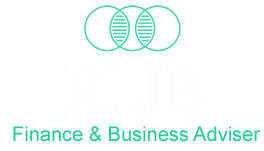Relaxation of self-assessment threshold
HMRC has promised a change to the threshold at which self-employed taxpayers need to complete a tax return. What do we know so far?

Currently, those with trading income exceeding £1,000 must submit a tax return each year, even if they do not have any tax to pay. HMRC has announced that the threshold will increase to £3,000, which it estimates will mean up to 300,000 people no longer needing to submit tax returns. There is no firm date for this, with the government saying that it will happen “within this parliament”, i.e. before the next general election.
The threshold applies to the gross income the self-employed person earns in a tax year, i.e. before deducting any expenses. Some affected individuals will still have an income tax liability, and HMRC intends to launch a “simple” online service to collect the tax in the absence of a self-assessment tax return. However, there is no information about what this will look like or how it will work yet.
Related Topics
-
Can you claim input tax on overseas sales expenses?
Your business sells goods and services to overseas customers, and you do not charge VAT. Can you still claim input tax on any UK expenses that directly relate to these sales?
-
A guessing game - interest rates and employee loans
Buried in the 2024 Autumn Budget were small print changes to HMRC’s “official rate” of interest. The consequences of these have just taken effect. How might they affect you and your employees?
-
Do hybrid workers take fewer sick days?
A survey of 2,000 hybrid workers by International Workplace Group has revealed that more than a third are taking fewer sick days than they did when they were working full time in the office. What are the potential reasons for this?






 This website uses both its own and third-party cookies to analyze our services and navigation on our website in order to improve its contents (analytical purposes: measure visits and sources of web traffic). The legal basis is the consent of the user, except in the case of basic cookies, which are essential to navigate this website.
This website uses both its own and third-party cookies to analyze our services and navigation on our website in order to improve its contents (analytical purposes: measure visits and sources of web traffic). The legal basis is the consent of the user, except in the case of basic cookies, which are essential to navigate this website.